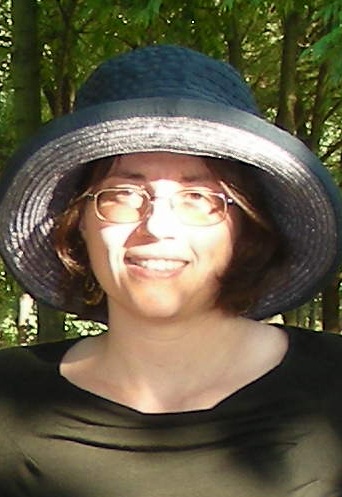Manuel Wimmer

Privatdoz. Mag.rer.soc.oec. Dr.rer.soc.oec.
Manuel Wimmer
- Email: manuel.wimmer@tuwien.ac.at
- Phone: +43-1-58801-18829
- Office: HG0219 (1040 Wien, Favoritenstrasse 11)
- About: UML, Object-oriented Modeling, Domain-specific Modeling, Metamodeling, Model Transformation, Software Engineering, Web Engineering, Model Engineering, Industrial Engineering, Automation Engineering, Multi-disciplinary Engineering
- Orcid:
- Keywords: Model Driven Engineering, Web Engineering, Model Transformation
- Roles: Affiliated
Publications
Towards a Multi-Objective Modularization Approach for Entity-Relationship Models
 Antonio Garmendia
Antonio Garmendia Manuel Wimmer
Manuel Wimmer Judith Michael
Judith Michael Victoria Torres
Victoria TorresKeywords:
Astract: Legacy systems and their associated data models often evolve into large, monolithic artifacts. This threatens comprehensibility and maintainability by human beings. Breaking down a monolith into a modular structure is an established technique in software engineering. Several previous works aimed to adapt modularization also for conceptual data models. However, we currently see a research gap manifested in the absence of: (i) a flexible and extensible modularization concept for Entity Relationship (ER) models; (ii) of openly available tool support; and (iii) empirical evaluation. With this paper, we introduce a generic encoding of a modularization concept for ER models which enables the use of meta-heuristic search approaches. For the efficient application we introduce the ModulER tool. Eventually, we report on a twofold evaluation: First, we demonstrate feasibility and performance of the approach by two demonstration cases. Second, we report on an initial empirical experiment and a survey we conducted with modelers to compare automated modularizations with manually created ones and to better understand how humans approach ER modularization.
Bork, D., Garmendia, A., & Wimmer, M. (2020). Towards a Multi-Objective Modularization Approach for Entity-Relationship Models. In J. Michael & V. Torres (Eds.), ER Forum, Demo and Posters 2020 (pp. 45–58). CEUR-WS.org. http://hdl.handle.net/20.500.12708/58221
BIM and blockchain : a decentralized solution for a change management workflow in construction projects
 David Peherstorfer
David Peherstorfer Galina Paskaleva
Galina Paskaleva Manuel Wimmer
Manuel WimmerKeywords: •Building Information Modelling, Blockchain, Smart Contracts, Ethereum, Construction
Astract: There is a big potential for process optimizations, due to the digitalization gap in the construction business. New digital technologies, as the Building Information Modelling (BIM), are increasingly being adapted by the stakeholders in this area. On the other hand, blockchain is a very new and innovative technology domain which has grown immensely in the last several years, and where people are now trying to find the right use-cases. Especially, the even newer field of smart contract development has opened the door for a large amount of possible applications, where it is neither clear if these can actually be implemented as envisioned, nor if there is even a need for a decentralized solution at all. In a construction project, changes on BIM models are only to be approved by the appropriate stakeholder. Therefore, we have combined the BIM models, which are stored using a Git repository, with a release management workflow, which is realised as a smart contract on the Ethereum blockchain.This enables the workflow to be transparent, traceable and its results to be immutable. The goal of this work is to create a prototype and compare it to other (off-chain) solutions and to evaluate if an application of a combination of BIM and blockchain yields an advantage in terms of costs and security.
Peherstorfer, D. (2019). BIM and blockchain : a decentralized solution for a change management workflow in construction projects [Diploma Thesis, Technische Universität Wien]. reposiTUm. https://doi.org/10.34726/hss.2019.58609
Modeling Variability and Persisting Configurations in OPC UA
 Bernhard Wally
Bernhard Wally Alexandra Mazak
Alexandra Mazak Manuel Wimmer
Manuel Wimmer Radek Šindelář
Radek Šindelář Peter Butala
Peter Butala Edvard Govekar
Edvard Govekar Rok Vrabic
Rok VrabicKeywords:
Astract: Variability is crucial in the design of many advanced goods and it is also receiving increasing attention in production systems engineering. Since OPC Unified Architecture plays an important role when it comes to standardized information exchange in modern production systems, it can be a melting pot for information from various engineering domains, such as product design and production engineering - thus, it is an ideal place to hold variability information of products and production systems alike. Based on an initial variability information model we propose additional concepts for the persisting of configurations.
Wally, B., Huemer, C., Mazak, A., Wimmer, M., & Šindelář, R. (2019). Modeling Variability and Persisting Configurations in OPC UA. In P. Butala, E. Govekar, & R. Vrabic (Eds.), 52nd CIRP Conference on Manufacturing Systems (CMS), Ljubljana, Slovenia, June 12-14, 2019 (pp. 13–18). Elsevier BV. https://doi.org/10.1016/j.procir.2019.03.003
Contents for a Model-Based Software Engineering Body of Knowledge
 Loli Burgueño
Loli Burgueño Federico Ciccozzi
Federico Ciccozzi Michalis Famelis
Michalis Famelis Leen Lambers
Leen Lambers Sebastien Mosser
Sebastien Mosser Richard F. Paige
Richard F. Paige Alfonso Pierantonio
Alfonso Pierantonio Arend Rensink
Arend Rensink Rick Salay
Rick Salay Gabriele Taentzer
Gabriele Taentzer Antonio Vallecillo
Antonio Vallecillo Manuel Wimmer
Manuel WimmerKeywords:
Astract: Although Model-Based Software Engineering (MBE) is a widely accepted Software Engineering (SE) discipline, no agreed-upon core set of concepts and practices (i.e., a Body of Knowledge) has been defined for it yet. With the goals of characterizing the contents of the MBE discipline, promoting a global consistent view of it, clarifying its scope with regard to other SE disciplines, and defining a foundation for the development of educational curricula on MBE, this paper proposes the contents for a Body of Knowledge for MBE. We also describe the methodology that we have used to come up with the proposed list of contents, as well as the results of a survey study that we conducted to sound out the opinion of the community on the importance of the proposed topics and their level of coverage in the existing SE curricula.
Burgueño, L., Ciccozzi, F., Famelis, M., Kappel, G., Lambers, L., Mosser, S., Paige, R. F., Pierantonio, A., Rensink, A., Salay, R., Taentzer, G., Vallecillo, A., & Wimmer, M. (2019). Contents for a Model-Based Software Engineering Body of Knowledge. Software and Systems Modeling, 18(6), 3193–3205. https://doi.org/10.1007/s10270-019-00746-9
Flexible Production Systems: Automated Generation of Operations Plans based on ISA-95 and PDDL
 Bernhard Wally
Bernhard Wally Jiri Vyskocil
Jiri Vyskocil Petr Novak
Petr Novak Radek Sindelar
Radek Sindelar Petr Kadera
Petr Kadera Alexandra Mazak
Alexandra Mazak Manuel Wimmer
Manuel WimmerKeywords:
Astract: Model-driven engineering (MDE) provides tools and methods for the manipulation of formal models. In this letter, we leverage MDE for the transformation of production system models into flat files that are understood by general purpose planning tools and that enable the computation of "plans", i.e., sequences of production steps that are required to reach certain production goals. These plans are then merged back into the production system model, thus enriching the formalized production system knowledge.
Wally, B., Vyskocil, J., Novak, P., Huemer, C., Sindelar, R., Kadera, P., Mazak, A., & Wimmer, M. (2019). Flexible Production Systems: Automated Generation of Operations Plans based on ISA-95 and PDDL. IEEE Robotics and Automation Letters, 4(4), 4062–4069. https://doi.org/10.1109/lra.2019.2929991
Projects
Multi-Paradigm Modelling for Cyber-Physical Systems (MPM4CPS)
Name: MPM4CPS; Title: Multi-Paradigm Modelling for Cyber-Physical Systems (MPM4CPS); Begins On: 2014-10-01; Ends On: 2019-05-31; Context: European Cooperation in Science and Technology (COST); View Project WebsiteCOSIMO: Collaborative Configuration Systems Integration and Modeling
Name: COSIMO; Title: COSIMO: Collaborative Configuration Systems Integration and Modeling; Begins On: 2014-01-01; Ends On: 2017-05-30; Context: Vienna Business Agency (WAW); View Project WebsiteARTIST: Advanced software-based seRvice provisioning and migraTIon of legacy Software
Name: ARTIST; Title: ARTIST: Advanced software-based seRvice provisioning and migraTIon of legacy Software; Begins On: 2012-10-01; Ends On: 2015-09-30; Context: European Commission; View Project WebsiteTROPIC: A Framework for Model Transformations on Petri Nets in Color
Name: TROPIC; Title: TROPIC: A Framework for Model Transformations on Petri Nets in Color; Begins On: 2009-03-01; Ends On: 2012-08-31; Context: Austrian Science Fund (FWF); View Project WebsiteAMOR: Adaptable Model Versioning
Name: AMOR; Title: AMOR: Adaptable Model Versioning; Begins On: 2009-02-01; Ends On: 2011-09-30; Context: SparxSystems Software GmbH; View Project WebsiteTeam
Business Informatics Group, TU Wien
Professors
Christian Huemer
Ao.Univ.Prof. Mag.rer.soc.oec.Dr.rer.soc.oec.
Dominik Bork
Associate Prof. Dipl.-Wirtsch.Inf.Univ.Dr.rer.pol.
Gerti Kappel
O.Univ.Prof.in Dipl.-Ing.inMag.a Dr.in techn.
Henderik Proper
Univ.Prof. PhDResearchers
Aleksandar Gavric
Univ.Ass. MEng. B.Eng.
Galina Paskaleva
Projektass.in Dipl.-Ing.inDipl.-Ing.in BSc

Marianne Schnellmann
Univ.Ass.in BSc MScMarion Murzek
Senior Lecturer Mag.a rer.soc.oec.Dr.in rer.soc.oec.
Marion Scholz
Senior Lecturer Dipl.-Ing.inMag.a rer.soc.oec.
Miki Zehetner
Univ.Ass. DI Bakk.rer.soc.oec. MScSyed Juned Ali
Univ.Ass. BSc MScStudent-Staff

Florian Fankhauser
Projektass. Dipl.-Ing.Julia Smejkal
BSc






